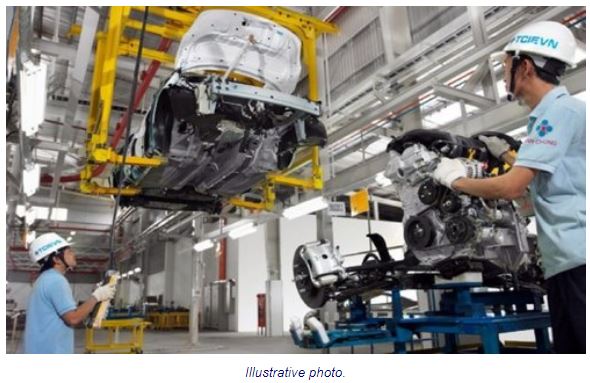Vietnam GDP growth set to reach 7% for first time in 10 years: NCIF
Based on Vietnam’s economic performance in the first nine months of 2018 and other factors, NCIF has drawn up two scenarios for growth in 2018.
For the first scenario, for 2018, Vietnam’s economy is forecast grow 6.83% and the average consumer price index (CPI) of 4%, while the growth rate is expected at 7.01% and CPI of 4 – 4.2% in the second.
In 2019, NCIF predicted Vietnam’s GDP growth rate at 6.9% and CPI 4% in the first scenario, and the respective figures are 7.1% and 4.5% in the second scenario. The center’s analysts assesed that the second one is more likely to happen.
According to NCIF, Vietnam’s economy would maintain high growth rate in the remaining months of 2018, thanks to strong growth from a number of key sectors, including manufacturing and processing, wholesale and retail, real estate, services, finance and banking, among others.
Additionally, NCIF said strong consumer demand could be in place until the end of the year on the basis of inflation under control and improved income. Meanwhile, the government would continue stabilizing macro-economic conditions through efficient management of interest and exchange rates.
The country’s economy is expected to grow strongly in 2019, thanks positive economic outlook, especially that of the US’s economic outlook, and Vietnam’s ongoing global economic integration through a number of new free trade agreements (FTAs).
Moreover, Vietnam’s business environment has been constantly improving, focusing on reforming business conditions and adminsitrative procedures.
A wide range of FTAs that Vietnam is party to have helped expand the country’s export markets and increased demand for Vietnamese goods, NCIF stated.
Nevertheless, NCIF also warned some challenges that could impact Vietnam’s economic growth. In the long term, a lack of driving forces could affect the economy in face of inflationary pressure, not to mention growing protectionism and non-trade barriers.
Trade friction among major economies could also have negative impacts on Vietnam’s economy, it added.


 Thailand
Thailand




